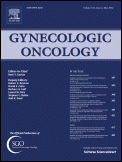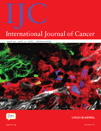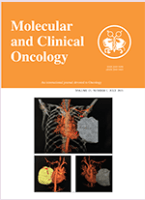
Breast Cancer
Scope & Guideline
Innovating treatment strategies for better patient outcomes.
Introduction
Aims and Scopes
- Clinical Research and Treatment Efficacy:
The journal publishes studies evaluating the efficacy and safety of various treatment modalities, including chemotherapy, radiotherapy, and surgical interventions for breast cancer. - Molecular and Genetic Insights:
Research articles delve into the molecular and genetic underpinnings of breast cancer, exploring biomarkers, genetic mutations, and their implications for treatment. - Patient-Centered Outcomes and Quality of Life:
The journal emphasizes research on patient-reported outcomes, quality of life, and survivorship issues, addressing the psychological and social dimensions of living with breast cancer. - Innovative Screening and Diagnostic Techniques:
It covers advancements in screening methodologies, including imaging techniques and biomarkers, aimed at improving early detection and diagnosis of breast cancer. - Epidemiology and Health Disparities:
The journal addresses the epidemiological aspects of breast cancer, including risk factors, demographic variations, and healthcare access disparities. - Multidisciplinary Approaches to Treatment:
The publication fosters a multidisciplinary approach to breast cancer treatment, encouraging collaboration between oncologists, surgeons, radiologists, and other specialists.
Trending and Emerging
- Precision Medicine and Personalized Treatment:
An increasing number of studies focus on precision medicine approaches, tailoring treatment based on individual genetic profiles and tumor characteristics. - Immunotherapy and Targeted Therapies:
Research on immunotherapy and novel targeted therapies, including antibody-drug conjugates and immune checkpoint inhibitors, is gaining momentum, reflecting an innovative direction in breast cancer treatment. - Digital Health and Technology Integration:
There's a growing interest in integrating digital health technologies, including telemedicine and mobile health applications, to enhance patient care and monitoring. - Long-term Survivorship and Quality of Life Studies:
Emerging themes focus on long-term survivorship issues, including quality of life, psychosocial aspects, and late effects of treatment, emphasizing the holistic management of breast cancer patients. - Multidisciplinary Care Models:
There is a trend toward exploring multidisciplinary care models that incorporate various healthcare professionals to improve treatment outcomes and patient satisfaction. - Liquid Biopsies and Biomarker Research:
Research on liquid biopsies and circulating biomarkers is becoming more prominent, offering non-invasive methods for monitoring treatment response and disease progression.
Declining or Waning
- Traditional Chemotherapy Protocols:
There appears to be a waning emphasis on studies solely focused on traditional chemotherapy regimens, as research increasingly shifts towards personalized medicine and targeted therapies. - Non-Oncological Comorbidities:
Research addressing non-oncological comorbidities, while still relevant, has been less frequently published, possibly overshadowed by more pressing oncological treatment studies. - Basic Science Studies Unrelated to Clinical Applications:
There is a noticeable decrease in purely basic science research that does not directly translate to clinical applications, as the journal favors studies with immediate relevance to patient care.
Similar Journals

Gynecologic Oncology
Empowering Innovation in Women's Health and OncologyGynecologic Oncology, an esteemed journal published by Academic Press Inc Elsevier Science, stands at the forefront of research in the domains of Obstetrics and Gynecology and Oncology. With an exceptional track record dating from 1972 to 2024, this journal has established itself as a vital resource for scholars and practitioners alike, boasting a remarkable Q1 ranking in both fields as of 2023. Gynecologic Oncology not only ranks #13 out of 209 in Obstetrics and Gynecology and #72 out of 404 in Oncology but also operates within the top percentiles of academic influence, with a 94th percentile in Obstetrics and Gynecology and an 82nd percentile in Oncology on Scopus. Although the journal does not currently offer open access, it remains crucial for disseminating original research, reviews, and advances in the management and treatment of gynecological cancers. Researchers and health professionals will find this journal indispensable for staying informed on the latest advancements and breakthroughs in this vital area of medicine, fostering a deeper understanding and potentially transforming patient care practices.

INTERNATIONAL JOURNAL OF GYNECOLOGICAL CANCER
Elevating the standard of gynecological cancer research.INTERNATIONAL JOURNAL OF GYNECOLOGICAL CANCER, published by BMJ PUBLISHING GROUP, is a leading interdisciplinary journal focused on advancing research and clinical practice in the field of gynecological oncology. With an ISSN of 1048-891X and an E-ISSN of 1525-1438, the journal has established itself as a vital resource since its inception in 1991, covering cutting-edge advancements through 2024 and beyond. The journal holds esteemed rankings, including Q1 in Obstetrics and Gynecology and Q2 in Oncology, highlighting its influence and high citation impact within the medical community. Its Scopus rankings underscore its prominence, placing it among the top 13% of journals in Obstetrics and Gynecology and the top 27% in Oncology. Although it does not currently offer Open Access options, the journal provides a platform for researchers, clinicians, and students to share significant findings and developments that shape the future of gynecological cancer research and treatment. The INTERNATIONAL JOURNAL OF GYNECOLOGICAL CANCER stands as a significant pillar in the ongoing effort to improve patient outcomes and foster innovation in this critical area of healthcare.

INTERNATIONAL JOURNAL OF CANCER
Transforming knowledge into breakthroughs in cancer care.INTERNATIONAL JOURNAL OF CANCER, published by Wiley, stands as a premier platform for the dissemination of cutting-edge research in the fields of cancer research and oncology. With an impressive impact factor reflecting its rigorous peer-review process and significant contribution to the scientific community, this journal is categorized in Q1 for both Cancer Research and Oncology as of 2023. It boasts notable rankings, being placed 38th among 404 journals in Medicine - Oncology and 32nd among 230 in Biochemistry, Genetics, and Molecular Biology - Cancer Research, positioning it within the 90th and 86th percentiles, respectively. Since its inception in 1966 and continuing to 2024, the journal has played a pivotal role in advancing our understanding of cancer biology, treatment modalities, and innovative therapeutic approaches. While it operates under a subscription model, the journal is committed to making valuable research accessible to a broader scientific audience. Researchers, professionals, and students alike will find the INTERNATIONAL JOURNAL OF CANCER an essential resource for staying abreast of the latest advancements in cancer science.

Current Oncology
Unlocking Knowledge, Transforming OncologyCurrent Oncology is a prominent open-access journal dedicated to the field of oncology, published by MDPI in Switzerland. With an ISSN of 1198-0052 and E-ISSN 1718-7729, this esteemed journal has been providing valuable insights since its inception in 1998 and continues to publish cutting-edge research through 2024. Recognized for its contribution to the medical community, Current Oncology holds a 2023 Q2 category rank in Oncology and is positioned at the 41st percentile among its peers in Scopus rankings. As a hub for innovation and discussion in cancer research, it offers a plethora of articles that span various aspects of oncology, making it an essential resource for researchers, professionals, and students alike. Since becoming fully open-access in 2006, it provides expanded accessibility to groundbreaking studies and findings, fostering collaboration and knowledge exchange across the global research community. With its central location in Basel, Switzerland, Current Oncology plays a pivotal role in advancing oncology's frontiers.

BRITISH JOURNAL OF CANCER
Connecting Researchers and Clinicians in the Fight Against Cancer.The British Journal of Cancer, published by SpringerNature, stands as a preeminent resource in the fields of Cancer Research and Oncology, with a distinguished history of publication dating back to 1947. With its Q1 rank in both categories for 2023, this journal is among the top-tier publications, offering cutting-edge research and insights into the biology, etiology, and treatment of cancer. The journal’s rigorous peer-review process ensures that readers are presented with high-quality studies that contribute to the advancement of cancer knowledge and clinical practice. Operating from the United Kingdom, it has garnered a notable impact factor and ranks impressively within Scopus, making it an essential publication for researchers, healthcare professionals, and students who are dedicated to understanding cancer's complexities. Access to the journal's articles is available in traditional formats, providing a versatile platform for disseminating pivotal research. As we move towards a future where cancer treatment and prevention remain crucial, the British Journal of Cancer continues to play a vital role in shaping the dialogue and discoveries within the oncology community.

Molecular and Clinical Oncology
Empowering breakthroughs in cancer biology and treatment.Molecular and Clinical Oncology is a dynamic journal published by SPANDIDOS PUBL LTD, aimed at advancing the understanding of cancer biology and treatment modalities. With an ISSN of 2049-9450 and an E-ISSN of 2049-9469, the journal serves as a critical platform for researchers and clinicians dedicated to uncovering novel insights in molecular oncology and enhancing clinical practices. As a testament to its growing influence, the journal has achieved a Q3 ranking in Oncology and a Q4 ranking in Cancer Research for the year 2023, reflecting its commitment to publishing high-quality research. Although currently not an Open Access publication, the journal offers crucial subscription options, ensuring comprehensive access to groundbreaking studies and innovations in the field. With converged years spanning 2018 to 2024, the journal is set to continue enriching the academic community with its valuable contributions, ultimately empowering researchers, professionals, and students engaged in the fight against cancer.

CANCER
Transforming knowledge into healing in the fight against cancer.CANCER, published by Wiley, stands as a pivotal journal in the field of oncology and cancer research, boasting an impressive impact factor and consistently dynamic growth since its inception in 1948. With an ISSN of 0008-543X and an E-ISSN of 1097-0142, this esteemed journal is recognized for its rigorous peer-reviewed articles, making significant contributions to the understanding of cancer biology, treatment modalities, and clinical practices. CANCER holds a distinguished position in the academic community, securing its placement in the Q1 category for both cancer research and oncology, and ranks within the top percentiles on Scopus, indicating its high impact and relevance. The journal is particularly beneficial for researchers, professionals, and students seeking to stay abreast of the latest advancements in cancer science. By addressing essential research questions and providing pathways for new therapies, CANCER continues to play a crucial role in shaping the future of oncology and improving patient outcomes.

World Journal of Oncology
Innovating oncology through rigorous research.The World Journal of Oncology, published by ELMER PRESS INC, is a vibrant platform for disseminating groundbreaking research and advancements in the field of oncology. With its ISSN 1920-4531 and E-ISSN 1920-454X, this journal is dedicated to publishing high-quality studies that enhance our understanding of cancer and its treatment. The journal is recognized for its significant contributions, evidenced by its Q2 classification in both Cancer Research and Oncology categories in 2023, and accolades such as a Scopus rank of #126/404 in Medicine _ Oncology. Catering to the needs of researchers, professionals, and students, the World Journal of Oncology offers an essential resource for the latest scientific insights and clinical practices, ensuring the global oncology community remains informed and engaged. The journal operates under a selective publication model, maintaining rigor in peer review while facilitating knowledge sharing across converged years from 2014 to 2016 and 2020 to 2024, further establishing its importance in the ongoing fight against cancer.

Translational Oncology
Advancing Cancer Research from Lab to LifeTranslational Oncology is a premier open access journal published by Elsevier Science Inc, dedicated to the rapidly evolving field of cancer research and oncology. Since its inception in 2008, the journal has been a vital platform for the dissemination of innovative research and findings that bridge the gap between laboratory discoveries and clinical applications. With an impressive impact factor and ranked Q2 in Cancer Research and Q1 in Oncology, it occupies a prominent position in the academic landscape, helping to shape the future of cancer therapeutics and patient care. The journal offers valuable insights across a diverse array of topics, including molecular biology, genetic factors in cancer, and innovative treatment strategies, ensuring relevance and engagement for its readership. As it converges toward 2024, Translational Oncology continues to attract a global audience of researchers, healthcare professionals, and students committed to advancing our understanding of cancer and enhancing clinical outcomes.

World Journal of Clinical Oncology
Illuminating the Path to Oncology ExcellenceWorld Journal of Clinical Oncology, published by BAISHIDENG PUBLISHING GROUP INC, stands as a vital resource in the realm of oncology, providing a dedicated platform for the dissemination of cutting-edge research and clinical advancements. With an ISSN of 2218-4333, this journal facilitates a comprehensive exploration of modern oncology challenges and breakthroughs, targeting researchers, healthcare professionals, and students alike. Although it operates under the traditional subscription model, the impactful nature of its content is reflected in its notable ranking of 60 out of 334 in the category of Medicine _ Oncology, placing it in the 82nd percentile among peer publications. Covering significant topics in clinical oncology from 2014 to 2018, the journal has been instrumental in addressing evolving oncology practices and patient care innovations. By publishing high-quality studies, it remains an essential tool for advancing knowledge and fostering collaboration within the global oncology community.